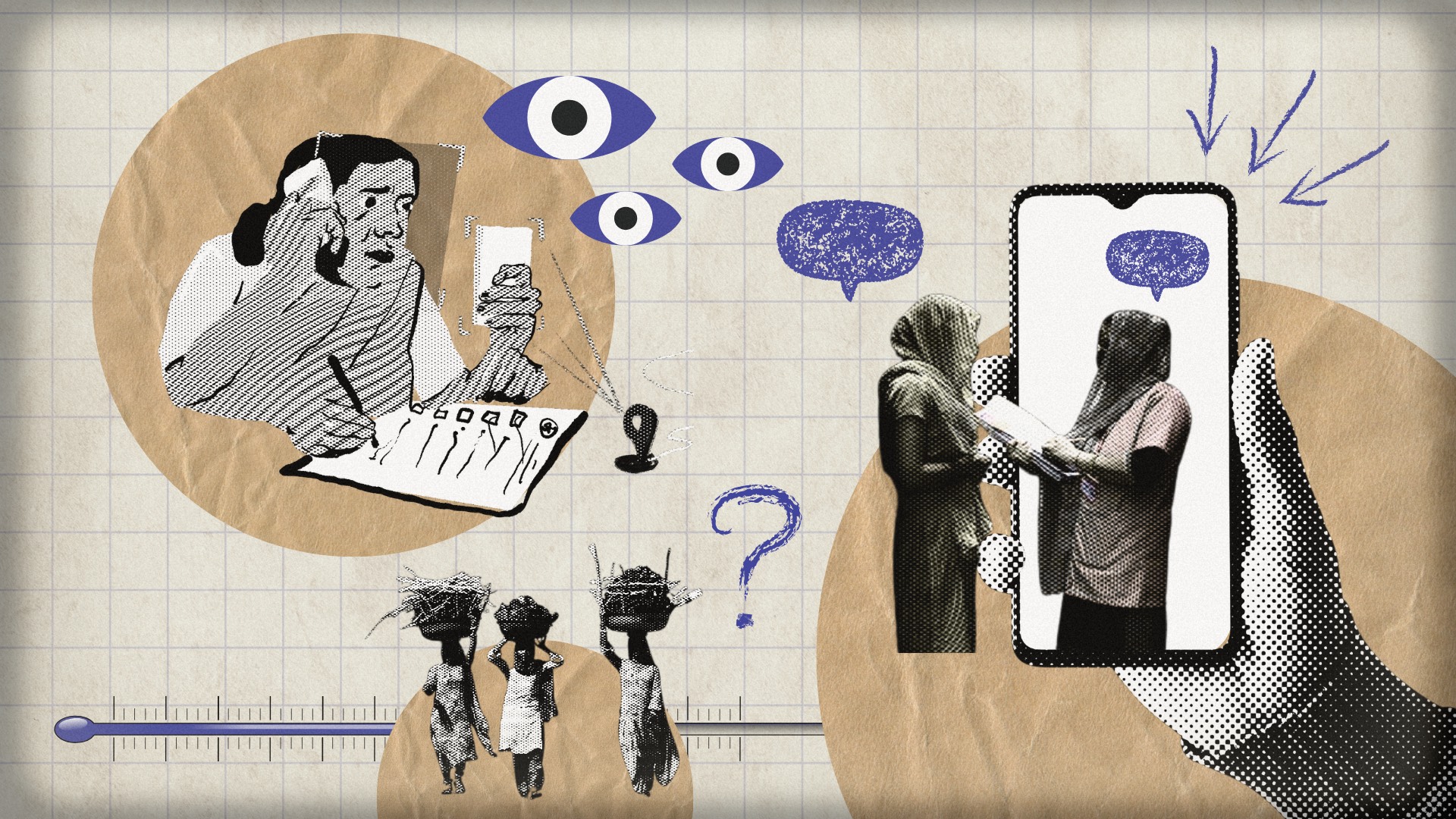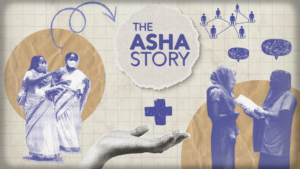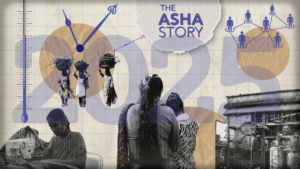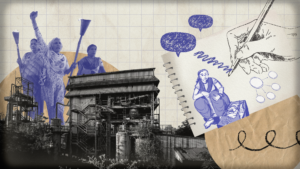In 2023, Sayantani Upadhaya, a Kolkata based freelance journalist, had reported for us on how hard Anganwadi workers were struggling with the digital transition of their work process. The Poshan Tracker app had been introduced in the Anganwadi system by the Ministry of Women and Child Development in March 2021 as the pandemic peaked. It was meant to reduce their workload, end manual data entry work along with making welfare delivery more efficient. It has, in fact, done the exact opposite of it.
“My fingers have gone numb. The boxes don’t click in one go,” Rina Goswami, an AWW from south Dinajpur had said in frustration. The app had turned her, a primary caretaker of pregnant women, lactating mothers, and children, to being the government’s data collection agent.
The digitisation process has only expanded in the interceding years. It is now throwing up an issue that was not obvious when we were focussed on the rising burden of work it brought – the rise of the surveillance state, in which community frontline workers are both agents of surveillance as well as the surveilled.
The digital surveillance state is well documented with the introduction and near mandatory imposition of Aadhaar and biometrics systems in modern India. But the idea of a community frontline worker as the agent as well as the subject of the surveillance infrastructure needs to be explored further. This has important gendered implications for women’s work in an expanding neoliberal state, which as academic Ian Buff argues ‘has always been about the reconceptualization not the amputation of the state’. We had intense yet informed discussions on this.
Our reporter Shreya Raman reported from Chhatrapati Sambhajinagar city (formerly Aurangabad) on the introduction of a private attendance application, Hajeri, by the municipal commissioner. It mandated that all employees in the corporation mark their attendance thrice a day using photographic evidence. Under the guise of bringing accountability and efficiency, the process was disrupting the lives of ASHA workers like Vaishali Borade, who are designated as ‘volunteers’ not employees, who took on multiple jobs to make ends meet. More recently, Anaganwadi workers in Tamil Nadu and Bihar told our reporters about the multiplicity of apps along with another disturbing trend – the use of facial recognition technology on the minor beneficiaries of the ICDS nutrition kits. This throws up dangerous implications that are scarcely reported or understood.
So, in our report, we expanded our investigation to ask deeper questions on privacy, workers’ agency, data stewardship and governance in the light of reduced protection for sensitive data under the recently passed Digital Personal Data Protection (DPDP) Act. “Privacy is dignity. Not having to prove your existence through data is a part and parcel of the right to privacy,” says technology and rights researcher Disha Verma, referring to the 2017 Puttaswamy judgement which held privacy as a fundamental right.
We also looked at the skewed power dynamics between the employer and the employed, and how they highlight worsening inequalities instead of erasing them.
Are the women workers’ aware of their role in furthering the surveillance state? What is the state’s obligation of transparency in making community workers aware of their role for the communities they serve? What happens when care work meets technology?
We don’t have all the answers yet. But as we go forward in our reportage on technology and its implications on women’s community work, these questions will inform the reportage of our newsroom. Because this is an essential and inescapable ‘future of work’.







